Text
This is a reckoning.
This is about the long-term consequence of carelessness.
In a split second, it all crashes down. And I don’t just feel hurt—I regress. I become that helpless child again.

I’m flooded with memories. The kind you don’t recall so much as relive.
I feel the ache of my inner child clawing to the surface. My reasoning collapses.

My thoughts fragment. I shrink, swallowed by despair. All I see is darkness. I return to the very moments that killed my ability to believe in the future.
The spark that once fueled my imagination and hope—it’s snuffed out without warning.
Yes, I understand myself more now. I know why I am the way I am. That’s a gift. But it’s a brutal one.
The Power of Adults— that terrorizes children
The profound impact that adults can have on a child's emotional well-being is often underestimated, particularly when it comes to seemingly trivial remarks made in passing.

A careless comment, dismissed as a mere annoyance, can resonate deeply within a child, potentially altering the trajectory of their development.
These offhanded words, delivered without thought or emotion, may fade from the adult's memory almost immediately, yet they can become pivotal moments in a child's life.
Such interactions can shape a child's self-perception, influence their relationships, and even affect their mental health in the long run.
Research has shown that verbal abuse can have effects comparable to those of more overt forms of abuse, such as sexual abuse, particularly when it comes to the development of self-esteem and interpersonal relationships.
nominal words carry nsignificant weight in a developing mind.
We don’t realize that one casual dismissal can be the deathblow to a child’s last sliver of hope.
MOST DISMISS THIS IDEAS AS ‘EXTREME’
YES… & children are extreme—in their sensitivity, their absorption of everything, their constant effort to piece together to discover who they are.
And we, as parents, often ignore this.
Many parents fail to hold that perspective when it matters most—right when we’re on the verge of breaking their trust… and usually it's not during a calm moment in life...

And when trust breaks?
It sets a child on a long, winding road of unconscious fragmentation.
They'll spend years cleaning up our mess, picking up the broken pieces — in which we were too cowardly or unconscious to fix.
Instead of growing into themselves, they grow up compensating for what they never received in order to become who they were meant to be.
They’re forced to become their own caregiver, therapist, mentor. Learning how to parent the inner child we abandoned for their approval that never came.
Children carry that weight while forced to grow, positioned to take risks.
But forgetfully blind adults have unconsciously rigged life against them. We shatter them and then pretend it wasn’t that bad expecting them to be at least as competent as we.
“At least you didn’t have it as bad as others,” some adults say when their child communicates their feelings.
TRAUMA—not a badge of ‘honor’

As if trauma needs a leaderboard to be legitimate.
Why do parents say this?
Sometimes it’s ignorance.
But more often? It’s willful blindness.
THIS IS AVOIDED BECAUSE —the most agonizing realization in life is this:
You failed tor children
There is no pain more suffocating than seeing the damage and knowing that you were the cause.
The child you once held with wonder in your eyes—the one you dreamed with—becomes a mirror. And what you see in them isn’t always joy, it’s sometimes the reflection of your scarcity, your deficiencies, your oversight.
That pain? It’s so unbearable we bury it. We bury it so deep, we silence the child who tries to bring it back up.

Facing it means accepting a truth no mother wants to admit:
You were the beginning of their undoing.

The Results of Receiving Unkind Love From Mother + It's Consequences
I’d rather never have a good day ever again than taste love so sweet it feels divine, only to have it turn sour—so fast it makes me question everything.
That kind of love, the kind where you feel seen, safe, cherished… and then suddenly discarded, devalued, abandoned on the whim of a mood swing?
That’s a spell, a curse.
& I fall into it every time—obsessing, analyzing, wondering:
What happened? What did I do?
Why can’t love remain when things go dark? Why is love conditional?
So yes—give me emptiness over illusion.
I’d rather live without gold than feel the weight of it crushed in my hands.
If love can be revoked so easily, it was never real. And what is real cannot die.
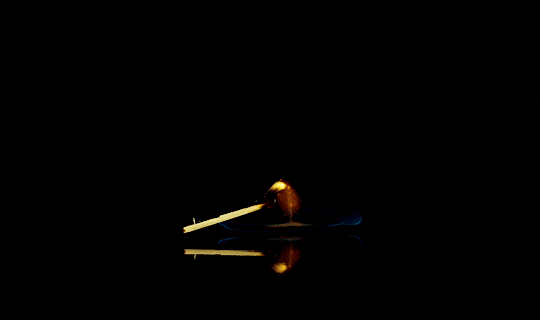
0 notes
Text
Breaking the Silence
Unlearning the Legacy of Emotional Suppression
I have spent a lifetime swallowing my own voice, stuffing my emotions into the darkest corners of my mind, because I was taught that feeling was a crime.
My mother ruled our home with an iron will, yet beneath her forceful presence was an insatiable need to be seen, to be worshipped and she'd fight to keep position as sole victim in the room.
No one else’s pain mattered—only hers.
If I cried, if I showed weakness, I became the villain in her story.
I was nothing more than the selfish, ungrateful child who dared to believe she had the right to hurt. She can't admit this is herself she's labeling me as. That's mean owning the pain and hypocrisy that are her defenses.
I learned quickly: silence was survival...
My tears would be met with her rage, but the worst 'punishment' wasn’t the bruises—it was the void.
The silence.
The suffocating exile of being ignored by the one person whose love I craved most.
My mother.
What about my father?
A beta to her alpha persona. He never stood his ground. Rarely ever challenged her. He withered under her dominance, absorbing every insult, every emasculating remark, until he became nothing more than a shadow .
He shut down his authentic brightness, withdrew, disappeared into himself rather than risk the repercussions engaging emotionally with her volatile, illogical and unresponsive wrath would cause him to do.
& I, his daughter, unknowingly took in that lesson: that a man’s survival depended on submission, on erasing himself.
Yet, paradoxically, I was also taught to let my emotions control me—just not in the way that meant vulnerability.
My feelings were to be denied, buried, but still serve as the foundation of every decision I made.
A chaotic contradiction: be numb, yet be ruled by the very thing you suppress. No wonder my mind felt like a battlefield, a convoluted maze of repressed truths and unfiltered reactions.
It wasn’t until recently that I began to unlearn this twisted conditioning. Conversations with men who embody strength—not the illusion of it, but the real thing—have forced me to reconsider what it means to be emotionally whole. A strong man does not drown in his emotions, nor does he fear them. He acknowledges them, faces them, and then moves forward. He does not let them rule him, but he also does not let them rot in silence.
I've heard:
“A man can’t sit there and break down every time something goes wrong. If we did, especially in front of our women, they would never respect us.”
This is truth, not in the toxic, outdated way of suppressing emotions entirely, but in the understanding that masculinity is not about being void of struggle—it is about overcoming struggle without being consumed by it.
It is about trusting someone with your pain while also proving that you have the strength to endure it.
I never saw this growing up. I saw the opposite.
My father feared emotion because to express it meant weakness, meant punishment. And my mother, she craved power, fed on his silence, thrived on making him feel small. She wanted his tears, but only so she could mock them.
She wanted his suffering, but only so she could feel superior.
This is not strength. This is dysfunction.
I see now how I was shaped by it all—how I was programmed to accept relationships where I am unseen, unheard, and unvalued. How I was conditioned to believe that I deserve to be used, to be drained, to be surrounded by people who take without giving.
But here is the truth I am learning: I do not have to keep reliving this pattern. I do not have to remain in spaces that deplete me. I do not have to be the product of my past.
What I once thought was love was control. What I once thought was strength was fear. What I once thought was normal was abuse.
And now, I am choosing differently. I am choosing to break the silence—not just in words, but in action. In who I allow into my life. In what I accept as love. In how I show up for myself.
Because survival is not the same as living.
And I am ready to live.
1 note
·
View note
Text
In the depths of solitude, after enduring the throes of self-pity and self-loathing, we transcend through,as if purified by the fire.
It is in this space of isolation that we must learn to be our own comfort, our own support system, and our own best friend.
As we journey deeper into the abyss of our minds, we often encounter feelings of loneliness, despair, and hopelessness. Yet, it is in these moments that we must summon the inner strength that dwells within us, awakening the warrior that compels us to BE.
We hold ourselves accountable for our well-being and speak truth to ourselves when the world around us is shrouded in lies.
0 notes
Text

Stress can temporarily impair brain function, affecting cognitive abilities and decision-making.
When under stress, the body releases hormones that can disrupt neural pathways, leading to difficulties in concentration and memory.
This response is often a survival mechanism but can hinder performance in daily tasks and decision-making processes.
0 notes
Text

Shadow Work - WHY YOU MUST
Embracing Innocence Lost Within Your Dark Shadow
Treasures of Shadow Work: Discover Your Divine Identity
There is a profound misconception that everything hidden in our shadow is sinful or wicked.
Awaken Wonder
In reality, the shadow often holds the most innocent and pure parts of ourselves—the childlike wonder, curiosity, and the tender vulnerabilities that have been suppressed for protection.
Esoteric Childlike Purity
These aren't traits to be feared but celebrated.
They embody the deepest understanding of life’s esoteric truths, untouched by the corruption of the world.
Holiness Buried Within
The Grave of Societal Pressure
As we grow, society teaches us to bury these qualities.
Our natural curiosity is stifled by rigid norms, and our vulnerability becomes something to hide rather than embrace.
Inverted Definition Of Strength
But these qualities, often engulfed by the shadow, are not marks of weakness or fault; they are gifts—reminders of the divine essence within us.
Integration A Pain That Offers Heavenly Joy
By reclaiming these parts, we not only integrate forgotten aspects of ourselves but through facing the part of us that we hate, we're allowing a more authentic, enriched existence.
This Child Will Return
If You Unlock His /Her Chains
In our childlike quirks and quiet vulnerabilities, we rediscover the sacred truths long concealed.
Let these hidden gems resurface, and embrace the innocence that lies within.
Seek More.
Think More .
Breathe More.
3 notes
·
View notes
Text
The treasures you’ll find doing Shadow Work…
Shadow work is the process of exploring and integrating the repressed parts of ourselves—our "shadow"—to develop greater self-awareness, acceptance, and emotional healing.
Embrace the innocence you can get back.
It had yielded to the darkness of your mind’s shadow, long ago.
Discover Your Divine Identity
Discovering your divine identity through shadow work involves directly facing and integrating the repressed aspects of yourself, often associated with childhood feelings of guilt, fear, or shame.
You can clear untrue —limiting beliefs & raise your vibrational frequency, ultimately aligning with your highest Self— Becoming conscious of you Oneness with God.
Contents in your shadow aren't bad or evil— they're rejected.
There is a deep misconception that everything hidden in our shadow is sinful or wicked.
Awaken Wonder
THE INNOCENCE LOST WITHIN THE SHADOW
In reality, the shadow often holds the most innocent and pure parts of ourselves.
Esoteric Childlike Purity
These aren't traits to be feared but celebrated.
They embody the deepest understanding of life’s esoteric truths, untouched by the corruption of the world.
Holiness Buried Within
The Grave of Societal Pressure
As we grow, society teaches us to bury these qualities.
Our natural curiosity is stifled by rigid norms, and our vulnerability becomes something to hide rather than embrace.
Inverted Definition Of Strength
But these qualities, often engulfed by the shadow, are not marks of weakness or drawback like commonly assumed in today's society; they are gifts—reminders of the divine essence within us.
Integration
A Pain That Offers Heavenly Joy
By reclaiming these parts, we not only integrate forgotten aspects of ourselves but through facing the part of us that we hate, we're allowing a more authentic, enriched existence.
This Child Will Return
If You Unlock His /Her Chains
In our childlike quirks and quiet vulnerabilities, we rediscover the sacred truths long concealed.
Let these hidden gems resurface, and embrace the innocence that lies within.
Seek More.
Think More.
Breathe More.
….(THE SHADOW) displays a number of good qualities, such as normal instincts, appropriate reactions, realistic insights, creative impulses, etc.” —Carl Jung, C.W. Vol 9 (Part 1): Archetypes and the Collective Unconscious
RELATED RESOURES
3 notes
·
View notes
Text
Introduction to Astrology -
Astro{n} + Logos
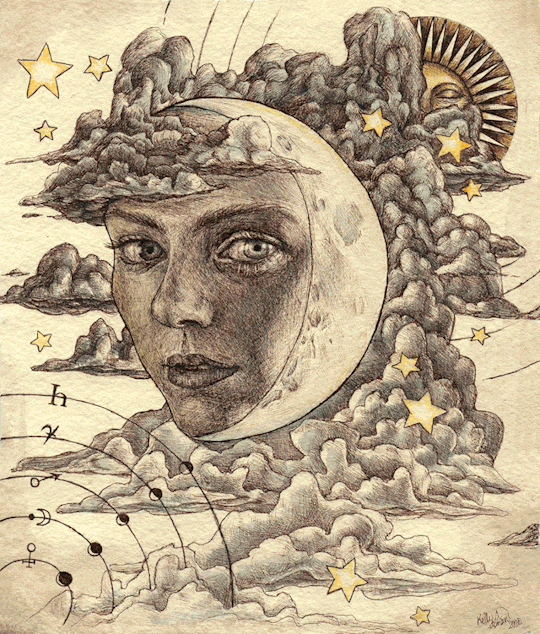
Definition and history
Astrology, derived from the Greek words "astron" (meaning "star") and "logos" (meaning "study"), is a time-honored discipline that explores the influence of celestial bodies on human life.
ASTROLOGIES ORIGINS
Its origins date back to ancient civilizations such as Mesopotamia, Egypt, and Greece, where astrologers observed the cosmic patterns and their correlation with human experiences.
Understanding the historical context of astrology allows us to appreciate it's enduring existence.
HUMAN POTENTIAL + ASTROLOGY
Astrology offers a unique lens through which we can comprehend human potential.
Astrology goes beyond simple personality traits and delves into
the depths of individuality, insights into talents, challenges, and life purpose.
By studying the cosmic forces' alignment at the moment and location of our birth, were we're allowed to gain a deeper understanding of our inherent strengths and weaknesses.
Planets
The Actors in the Cosmic Drama
Roles and characteristics of the planets
In astrology, the planets represent the key players in the celestial theater, each embodying distinctive energies and archetypal qualities. From the fiery passion of Mars to the nurturing and intuitive nature of the Moon, each planet contributes to the kaleidoscope of human experience. Understanding the core essence and symbolism of each planet equips us with a comprehensive toolkit for interpreting astrological charts and discerning their impact on personal potential.
How each planet influences different aspects of life
The influence of the planets extends across various domains of life, encompassing love, career, spirituality, and more.
For instance, Venus governs matters of love, beauty, and aesthetics, while Saturn symbolizes discipline, responsibility, and life lessons. By examining the placement and aspects of the planets in an individual's natal chart, we can unravel the tapestry of influences that shape their potential and life trajectory.
Elements, Signs, and Houses: The Building Blocks
Understanding the elements and their significance:
The four elements
... fire, earth, air, and water - form the building blocks of astrology, representing distinct energetic qualities.
Fire embodies passion, inspiration, and creativity.
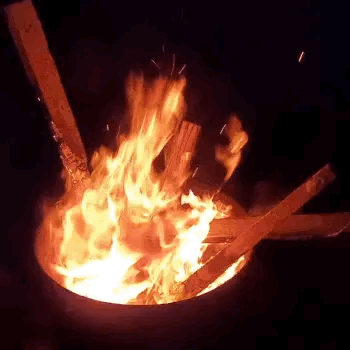
Earth signifies stability, practicality, and groundedness.
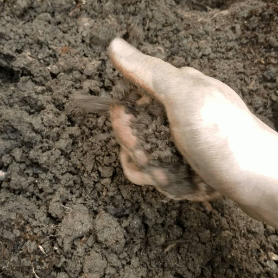
Air symbolizes intellect, communication, and adaptability.
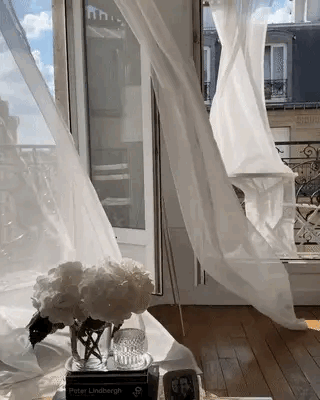
Water represents emotions, intuition, and sensitivity.

Understanding the elemental composition of a birth chart enables us to discern the fundamental strengths and challenges that shape an individual's potential.
Exploring the zodiac signs and their qualities
The zodiac signs, divided into twelve equal parts, provide further nuance to astrological interpretations. Each sign possesses its own unique qualities and characteristics, reflecting different approaches to life. For instance, Aries embodies initiative, leadership, and assertiveness, while Pisces embodies empathy, compassion, and adaptability. By understanding the qualities and traits associated with each sign, we can unravel the layers of an individual's potential and gain insight into their distinctive path.
Unveiling the astrological houses and their areas of influence
The astrological houses are twelve divisions that highlight different areas of life experience. Each house denotes a specific aspect, such as relationships, career, health, or personal identity. Understanding the houses allows us to pinpoint the specific arenas where an individual's potential is expressed and where challenges may arise. By analyzing the interplay between planets, signs, and houses, we can create a comprehensive picture of an individual's potential and the dynamics at play in their life.
Synthesizing the Cosmic Blueprint
Natal Horoscope Interpretation
Reading and interpreting a natal horoscope chart
The natal horoscope, also known as the birth chart, is a graphical representation of the cosmic energies present at the time of an individual's birth. It provides a blueprint of their potential, highlighting key planetary positions, aspects, and house placements. By analyzing the symbols and patterns within the birth chart, we can unravel the unique story encoded in the heavens and gain a profound understanding of an individual's potential.
Identifying planetary aspects
their impact on personal potential
Planetary aspects refer to the geometrical relationships formed between planets in a birth chart. These aspects reveal the energetic interplay and dynamics between different planetary forces. For example, a harmonious aspect between Venus and Mars may signify a harmonious blend of love and passion, while a challenging aspect between Saturn and Uranus may indicate a tension between stability and change. Understanding the planetary aspects allows us to grasp the intricacies of an individual's potential and the challenges they may encounter on their life journey.
Analyzing the interplay
planets, signs, & houses
The true power of astrology lies in the synthesis of various elements within a birth chart.
By examining the interplay between planets, signs, and houses, we can decipher the intricate dance of energies that shape an individual's potential. For example, a person with a strong Mars placement in the sign of Aries in the tenth house may possess great drive and ambition in their career, while someone with a prominent Venus in the sign of Libra in the seventh house may excel in cultivating harmonious and balanced relationships. By analyzing these interconnections, we gain a comprehensive understanding of an individual's potential and the unique tapestry of influences that shape their life path,
#astrology#astro notes#astronomy#astro observations#astro community#astrology notes#solar return#12th house#birth chart
49 notes
·
View notes
Text
ZODIAC
What is the Zodiac?
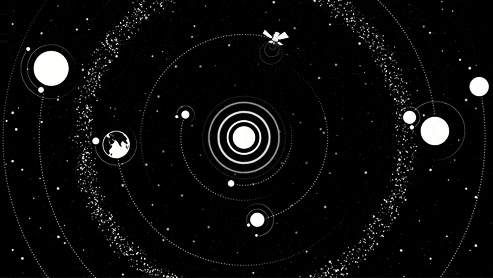
The Zodiac is a circular band in the sky that is divided into 12 equal parts, each representing a different astrological sign.
The 12 signs of the Zodiac are:
1. Aries
2. Taurus
3. Gemini
4. Cancer
5. Leo
6. Virgo
7. Libra
8. Scorpio
9. Sagittarius
10. Capricorn
11. Aquarius
12. Pisces
These 12 signs are based on the position of the Sun relative to certain constellations as observed from Earth.
The Zodiac circle is used in astrology to interpret the positions and movements of the Sun, Moon, planets, and other celestial bodies in relation to the 12 signs, which are believed to influence human affairs and terrestrial events.
Each part, or 'sign,' spans 30 degrees of celestial longitude and corresponds to a constellation.
Constellation: an unplanned formation of stars perceived as a figure or pattern
Let's Break Down What This Means:
The Zodiac, a band of the celestial sphere, is divided into 12 equal parts, each associated with a specific constellation.
These parts are the 12 signs of the Zodiac: Aries, Taurus, Gemini, etc.
When it's said that
"Each sign spans 30 degrees of celestial longitude"
This means that each of these 12 divisions covers 30 degrees of the sphere (because 360 degrees divided by 12 equals 30 degrees).
So, if you were to visualize the sky as a complete 360-degree circle, each Zodiac sign occupies its own 30-degree slice of that circle.
This is what astronomers refer to when they talk about the position of celestial bodies, they're often discussing where these bodies are about these 30-degree divisions.
Celestial Longitude
The term "celestial longitude" is analogous to how we think of longitude on Earth — it's a way to measure location, but in the sky rather than on the ground.

Each 30-degree section of the Zodiac is associated with a specific group of stars that, from our perspective on Earth, form a specific pattern in the sky.
These patterns are what we call constellations.
LET'S REVIEW AND TRY TO DISCERN MORE CONCRETELY TO UNDERSTAND THE ZODIAC:
The zodiac is an imagined belt in the sky that extends approximately 8° north and south of the Ecliptic.
Ecliptic: the path of the Sun across the celestial sphere over the course of the year
WHAT DOES 8° NORTH OR SOUTH MEAN?
The region 8 degrees north or south of the ecliptic is significant in astronomy and celestial observations.
This region corresponds to the band where the paths of the planets are located in the sky. It is within this area that astronomers track and study the movements of celestial bodies, including planets, asteroids, and comets.
The position of these objects relative to the ecliptic provides valuable information for astronomical research and observations.
The orbital paths of the Moon and major planets are within the belt of the zodiac.
Orbital Paths: An Detoured Motorway for energy to travel on
In Western astrology, the zodiac is divided into twelve signs: Aries, Taurus, Gemini, Cancer, Leo, Virgo, Libra, Scorpio, Sagittarius, Capricorn, Aquarius, and Pisces.
Each sign occupies 30° of celestial longitude and roughly corresponds to the astronomical constellations with the same name.
The term 'zodiac' also refers to the region of the celestial sphere that includes the paths of the planets. This region extends approximately 8 arc degrees above and below the ecliptic, which is the apparent path of the Sun across the sky throughout the year. It is within this band that the orbital paths of the planets are located.
The zodiac is used in astrology to predict the future and determine a person's physical characteristics as well as intelligence and personal traits.
The twelve signs of the Zodiac include: Aries, Taurus, Gemini, Cancer, Leo, Virgo, Libra, Scorpio, Sagittarius, Capricorn, Aquarius, and Pisces.
OVERVIEW OF ZODIAC:
The belt-like region of the celestial sphere is approximately eight degrees north and south of the ecliptic which include the apparent path of the sun, moon, and visible planets.
The twelve equal divisions of the zodiacal region into signs or houses, each named for a prominent constellation in the region.
The ecliptic: the belt-like region of the celestial sphere corresponding to the apparent path of the sun over the course of a year.
Any of various astrological systems considered similar to the above.
A circle decorated with the signs of the zodiac.
ZODIAC - Where Did The Word Come From? ETYMOLOGY-
The word zodiac comes from Latin zōdiacus... Which comes from the Greek ζῳδιακός křklos, meaning "circle of little animals".
In ancient Greek, ζῷον (zōion) meant "animal" or "living being" and δεκατέσσαρες (dekatesseres) meant "twelve".
When combined, ζῳδιακός κύκλος (zōidiakos kýklos) literally meant "circle of twelve animals" and referred to the twelve constellations along the ecliptic through which the sun, moon and planets appear to travel.
#astrology#astronomy#astro notes#horoscope today#gemini weekly horoscope: what your star sign has in store for october 1 – 7#virgo#education
20 notes
·
View notes
Text
You Are Still Abusing Your Inner Child

I delve into the recesses of my past, I find myself contemplating the intricate journey of my inner child, a part of me that has long remained ensnared in the shadows, unable to grow and evolve in tandem with the rest of my being. This inner child, a delicate fragment of my identity, instinctively distanced itself from its own existence as a form of self-preservation, crafting a protective barrier designed to shield me from perceived threats.
The role of the shadow was to guide the adults around me, shielding me from the pain that threatened to engulf my young soul, allowing me to dissociate from the harsh realities of life. In its primal innocence, this child lacked the healthy coping strategies that come with maturity, thus relying on the psyche and unconscious to navigate the storm.
The shadow, born out of the tumultuous environment of mental, emotional, physical, and spiritual abuse, instability, and toxicity during my developmental years, emerged as a fragmented aspect of self. It sought to preserve itself in the short term, but unknowingly wreaked havoc on my life, manifesting as personality disorders that left me easily triggered and consumed by uncontrollable anger reminiscent of a child. Alternatively, it led me down a path of vindictiveness and calculated actions, extinguishing any opportunity for vulnerability to take root within me.
Unhealed trauma and disowned aspects of ourselves linger persistently, refusing to dissipate with time. We cannot simply "get over it" or bury these experiences in denial, for even if the memories fade from our conscious recollection, their impact reverberates throughout our entire existence. They shape our reactions, behaviors, and thought processes, silently influencing our lives.
The shadow is an inseparable part of who we are, akin to our physical organs that we cannot rid ourselves of. It is an integral aspect of our being, one that demands acknowledgment and understanding. Only through embracing this shadow, by delving into the depths of our inner child, can we embark on a journey of healing and integration, forging a path towards wholeness and self-acceptance.
1 note
·
View note
Text
FULL SPECTRUM of Human Emotions

I found the need to embrace the full spectrum of human emotions, embodying them in their rawest form even in the midst of traumas.
Why? Because it is what it is.
Keeping Me Humble
Through these experiences I am reminded of my vulnerability and deep need for the strength that only comes from my Creator.
The capacity to feel.
I am grateful to still have the capacity to feel deeply, even though I am not shielded from the intensity of pain and sting of anguish that life invokes. I am grateful to still be whole. In being Whole I hate anything threatening to separate me from myself. This is what sin does; Fragmentation.
Hatred For Sin
I have a hatred for my own sin. This hatred is born out of understanding that it is the very act of separating what is whole making it unholy.
Sin gives me a righteous anger.
What does righteous anger do to us?
It ignites a fervent passion in us for God... through each trial, we are made to see it is He Who leads us through every time. He is living within. He is pruning us.
What does it mean to be pruned by God?
Being pruned by God is a privilege. It is a sign that you are His child.
Trials and tribulations are the path all followers of God walk when in this world.
Prophets & Apostle | Hated
The prophets and apostles were always odds with the world—an experience that parallels the challenges faced by God's children.
The eye is the lamp of the body. If your eyes are healthy, your whole body will be full of light; but if your eyes are unhealthy, your whole body will be full of darkness. If then the light within you is darkness, how great is that darkness!
-Jesus
EYE OF THE BODY (Eye of God/Yah)
What happens when we have the Eye of God?
Doubt disappears, & Eternity becomes Known.
The Eye of God is the LIGHT!!
The Eye of God is Holy
Anything less than holiness cannot enter the Holy of Holies.
Why?
One fragment of impurity is short of perfection and cannot be Holy anymore.
Remember the Scripture:
A little leven in the dough, levens the whole lump of dough...
Material Body vs Soul
The flesh is tainted by sin.
What is sin?
Sin is simply imperfection.
The material body effects the Soul.
Why?
The Soul lives within the body's confines...
Importance of Spirit in saving the Soul:
The Spirit cleanses and purifies the Soul from the body's deeds.
Why God cares about Holiness?
Holiness is Who God is ...
What marks someone as God's?
The desire to love Him
What marks an unbeliever?
Loyalty and worship to their physical body and material needs...
What happens to us when we repent?
Supernatural compassion overflows & understanding becomes a quality within our thoughts, especially harboring empathy for those who don't ‘deserve’ it.
Mercy & Grace.
Would I rather feel pain or numb?
Pain.
Why?
Numbness detaches us from our true emotions. Shielding is from knowing TRUTH.
... we are not everything we once believed ourselves to be....
Why this matters?
We can become everything we should be when we let go of false beliefs. This is Ego.
Ego | What is its root?
CHILDHOOD SHAME
As we become adults, we deny our own shame.
We avoid accountability for those feelings and memories to preserve ourselves.
What are we trying to preserve of ourselves?
The fragile sense of self-worth.
What is this sense of self worth, actually worth?
Nothing, it is worthless.
True change comes through recognizing our ego's lack of worth and seeing our imperfections.
What's the point of seeing our own imperfection?
We can then see our real need for Wholeness.
Depth of God's Love
The depth of God's love for is more amazing than any illusions of grandiosity.
Why?
Because His love isn't deserved.
Senses Dulled By Sin
Why?
Turns our 5 senses useless, and turns our hearts into stone. We become cold.
What happens when we avoid our own sin?
We deny ourselves the true yoke of peace and the relief that Christ has.
How to experience God's comfort?
Recognizing our own inability and unworthiness.
All Are Wicked Sinners... ALL
We are all wicked, and none of us are special.
Who is worthy of praise?
God Alone.
Who is God?
He is our Savior, Redeemer, and Father, the Author of all matter, time, and dimensions. He is unrestricted by time.
Who created time?
God created time. We are restricted by time.
Who we are, apart from His Grace?
Apart from Him we are consumed by a desire for retaliation, gossip, backbiting, and slander, seeking to cause pain to others.
Why?
Ego Worship is human nature.
What are the Fruits of the Ego?
Temporary satisfaction, delusional fulfillment, and ultimately, in the end...
... death
What happens to our soul without God?
Our inherent wickedness remains linked to our Soul, leading us to the grave with the body.
What happens if we stay numb?
Remaining numb toward others, slandering them out of pride, or turning away from the truth to protect our egos leads us down a destructive path.
... what we resist, persists.
Why don't we admit our own lack?
Many of us were not taught how to function emotionally, regulate ourselves, or exercise self-control as children, leading to unresolved issues that persist into adulthood.
We must acknowledge these aspects of ourselves instead of denying them.
Why?
So we can be changed, leading us to repentance and eternal peace with God
This is a War between your ego & God
Ask Yourself:
Do you profess Christ as your Savior but still fear facing your sins and inner struggles because your ego seeks to triumph over God?
Answer Honestly.
2 notes
·
View notes
Text
Discern Your Diary

#camidiscerns #cami
#camille
#camidiscerns.com
#journal #entry #wordpress
#Spotify

0 notes